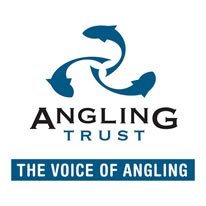Environment Agency Fisheries South West Newsletter March 2014

Half term Holidays - May 2014
Are your kids over 12 years old ??? Do they like being outdoors and active?
If so why not book them on to a day’s introduction to fly fishing in Cornwall

The Angling Trust is pleased to invite you to the 2014 Angling Trust South West Development Road Shows.
The first event in Swindon on March 22nd is the first in a series of Angling Trust Development Road Shows planned across the South West this year. We would like to meet as many different people from the world of angling and help to support as much angling participation as possible throughout the region.
The development road shows will offer you the opportunity to;
River Wey opened up for fish passage
The River Wey in Weymouth is now open for sea trout and salmon migration every day, for the first time in a century. Westham Bridge, built in the early 1900s, effectively blocks off the River Wey from Weymouth Harbour. All water leaving the river system has to pass through a series of penstocks and flood flap controlled culverts. Migration is now possible, because we have installed a retarder (simply a large spring) to hold the flood flap open. The retarder holds the flap open at 300mm for a short period either side of the rising and falling tides and closes when equilibrium water pressure is reached. This gives sea trout and salmon an opportunity to move in and out of the river. Roger Genge, fisheries catchment officer for the Wey, will be carrying out random visual checks at the bridge two hours before, or after high tide, to observe fish movement through the flap.
In Devon, the fish pass at Tipton St. John on the River Otter has now been completed. This site was previously discussed in our May edition of the newsletter and will allow upstream passage for fish, especially salmon.
Two weirs near Storridge, River Yealm in South Devon were dismantled and have been carefully rebuilt under the close supervision of Julian Payne, one of our geomorphologists. Structures known as ‘check weirs’ were included in the design and also some bank protection work was carried out to stop the river under-cutting during high flows. Using our ‘in house’ expertise we were able to complete this groundbreaking project at minimal cost. The clay company, Sibelco UK, donated nearly 200 tonnes of large boulders with an approximate cost of £8,000 to help the project. The 19 large lorry-loads of local stone came from less than two miles away. This helped keep transport costs down and reduce the carbon footprint of the scheme.
Angling participation events